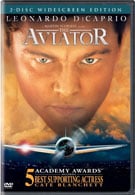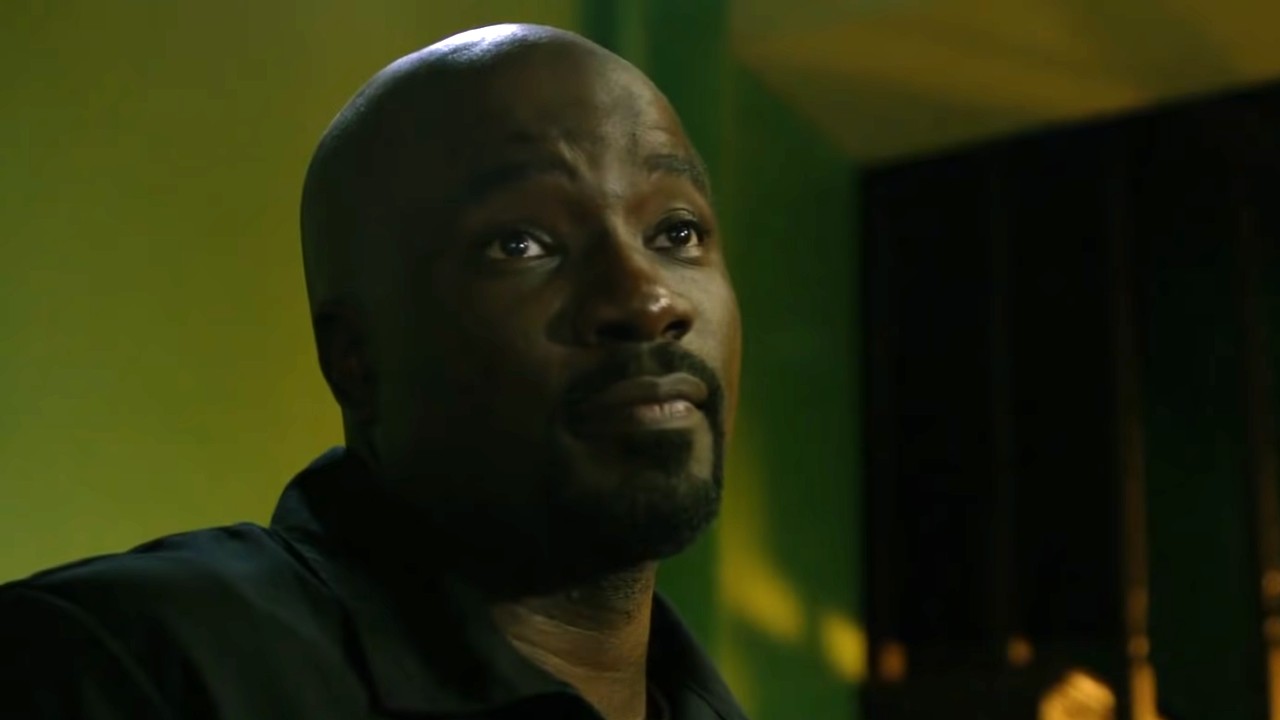There’s no doubt about it. Howard Hughes is definitely in the books as one of the most eccentric people to ever hit celebrity status. Most of us just know his later years, when his mental instability and paranoia reached its height and he paraded around with lengthy fingernails and hair, and with his feet in the safety of kleenex boxes. However he wasn’t always that way. In his youth he was The Aviator, a millionaire playboy who always had a beautiful woman on his arm, and reinvented aviation in a way that still influences modern day flight. Martin Scorsese’s The Aviator is a solid reminder of several things. First, for those of us who didn’t care for Gangs of New York, his tale of Howard Hughes is a reminder of why Scorsese is a master filmmaker. Scorsese takes a unique approach to telling the story of Hughes, dividing the film visually into different time periods - the eras of film itself. Early on in the film the imagery is washed out, really only made up of three or four colors. As the movie proceeds through technicolor, and into more modern methods of film, the images become more vibrant and lifelike. It’s a brilliant visual approach that really proves why Scorsese deserves recognition as a director.
Secondly, the movie is a reminder that Leonardo DiCaprio can act. The young actor’s career started off with acclaim in roles like The Basketball Diaries and What’s Eating Gilbert Grape but quickly diminished. Despite being the most successful film of all time, DiCaprio’s performance in Titanic was considered weak, with no real depth to the role. There can be no accusations of that in The Aviator where, within minutes of the film’s beginning DiCaprio simply disappears, leaving only a solid portrayal of Howard Hughes, whose texas accent and angular features remove any evidence of DiCaprio’s presence.
And DiCaprio isn’t the only actor deserving acclaim for The Aviator, he’s simply the headliner in a cast of unbelievable skill. With names like Cate Blanchett, John C. Reilly, and Ian Holm in the cast you have to expect brilliance, but all of the actors really bring their best to the movie, even the actors who play pretty much the same roles they always play. Alec Baldwin is perfectly cast in a very Baldwin-type role as Juan Trippe, the head of Pan-Am Airlines and Hughes’ main opposition. Alan Alda also plays a normal Alda type performance as Senator Brewster, the congressional face for Trippe. I have to admit, this was a role that I didn’t consider worthy of an academy nomination, but then it was pointed out to me - perhaps we’re just so used to what Alda does, we’ve forgotten how powerful that can be. After rewatching the film I’m inclined to agree. Of course Cate Blanchett’s portrayal of Katharine Hepburn must be mentioned, as it eerily brings Hepburn back to life, but I think Kate Beckinsale’s Ava Gardner is also a brilliant performance, all too easily overlooked among the rest.
Finally The Aviator is a reminder that Hughes wasn’t always the crackpot history remembers him as. In his youth he was the ultimate celebrity. Hughes was the first to spend over a million dollars on a movie and to push the boundaries of censorship on another film. He always had a beautiful woman by his side, and interacted with some of the greatest celebrities of the silver screen’s golden age. Mostly though he was a man dedicated to the industry of flight. Ironically the same obsessive compulsive behavior that would plague him later in life, led to the creation of some of the greatest advancements in aviation. The movie covers all of this, and even shows the beginning of Hughes decent into madness, but does it in such a manner that the audience can’t help but view Hughes in a sympathetic light, as opposed to the extremely strange monster we tend to associate with Hughes name.
With Scorsese at the helm it was pretty much assumed The Aviator would be a big film. With an amazing cast and a fantastic script by John Logan, this isn’t just a big film, but a brilliant piece of cinematic art. It’s the kind of film that will last for ages as a testament to the accomplishments of Hughes’ life and the film making power of Martin Scorsese. The DVD release of The Aviator makes the smart move of not only covering the making of the movie, but also expanding on the factual information the movie is based on. With featurettes about both The Aviator and Howard Hughes, this is a solid two disc set.
The movie makes up disc one, and I have to say this is one of those films that makes you glad the DVD format exists. The movie looks and sounds fantastic, really making use of its 5.1 sound. I can’t imagine watching such brilliant visuals on grainy videotape. The movie is accompanied by a commentary by Scorsese who attacks the concept of a commentary with his usual gusto.
The second disc is where all the extras lie, starting with a deleted scene from the movie where Howard explains to Ava Gardner how he knows the value of a human life. This is probably where my one complaint about the DVD lies. Thanks to the age of the internet, we know more than one deleted scene was cut, but yet only one scene is included on the DVD. Why the producers felt the need to leave out other deleted scenes (such as the one with Amelia Airheart) is beyond me. I’m sure they had their reasons, but it’s just a strange decision, especially when the knowledge that the scenes exist is out there.
Your Daily Blend of Entertainment News
A little more than half the extras focus specifically on Howard Hughes. For general information about the man and the myth there’s a History Channel documentary, “Modern Marvels: Howard Hughes”. Other featurettes target more specific areas of Hughes’ life including his contributions to modern day flight. “The Affliction of Howard Hughes” focuses on Obsessive Compulsive Disorder, showing modern day examples of people afflicted with the disease and interviewing medical experts on how Hughes could have survived in today’s world. There is also a discussion on OCD with those medical experts and the cast/crew of The Aviator for those who want to see how the medical knowledge applies to the movie.
Other featurettes provide a behind-the-scenes look at The Aviator, with short (5-10 minute) documentaries about just about every aspect of the movie. Characterizations, visual effects, costumes, hair, and makeup are all covered in different featuettes and really shed some light on how hard it was to recreate the golden age of Hughes, Hepburn, Gardner, and Flynn. My favorite of these, however, is about Howard Shore’s amazing score for the movie and the influences he used to create the music for the movie. Just when you think you’ve hit every area of the movie there’s a cute little featurette about the Wainwright family, a father and his son and daughter who played the Cocoanut Grove performers throughout the ages of The Aviator. It’s just a neat little fact to know the three performers were related and who knows, maybe it’ll win you a game of Trivial Pursuit one day.

